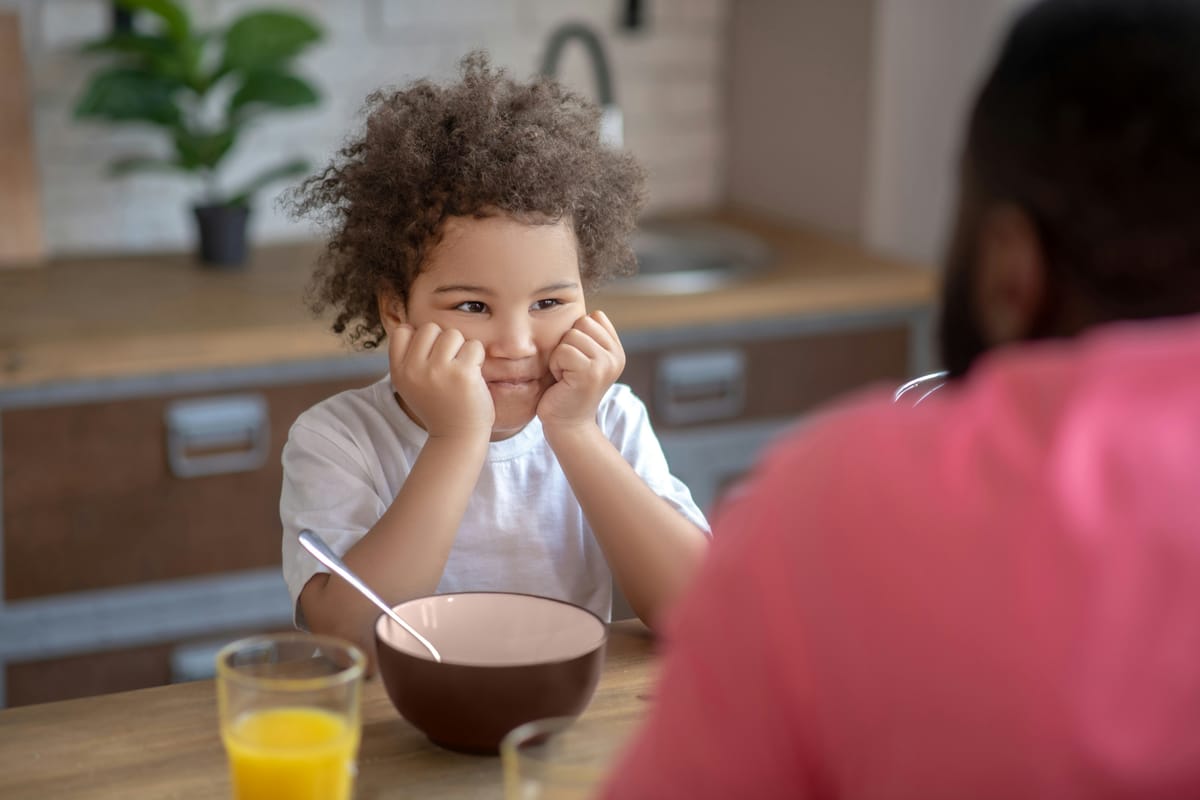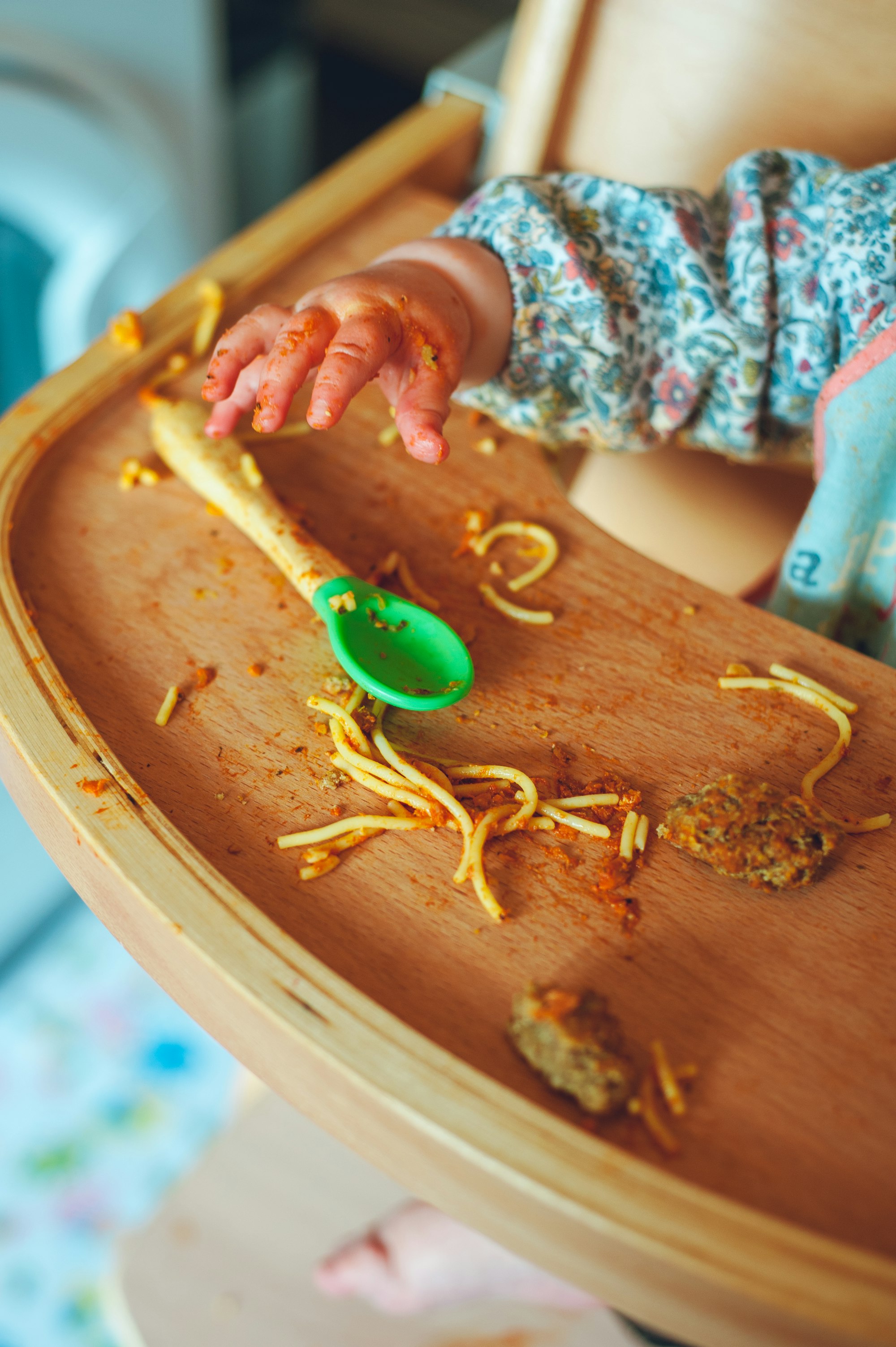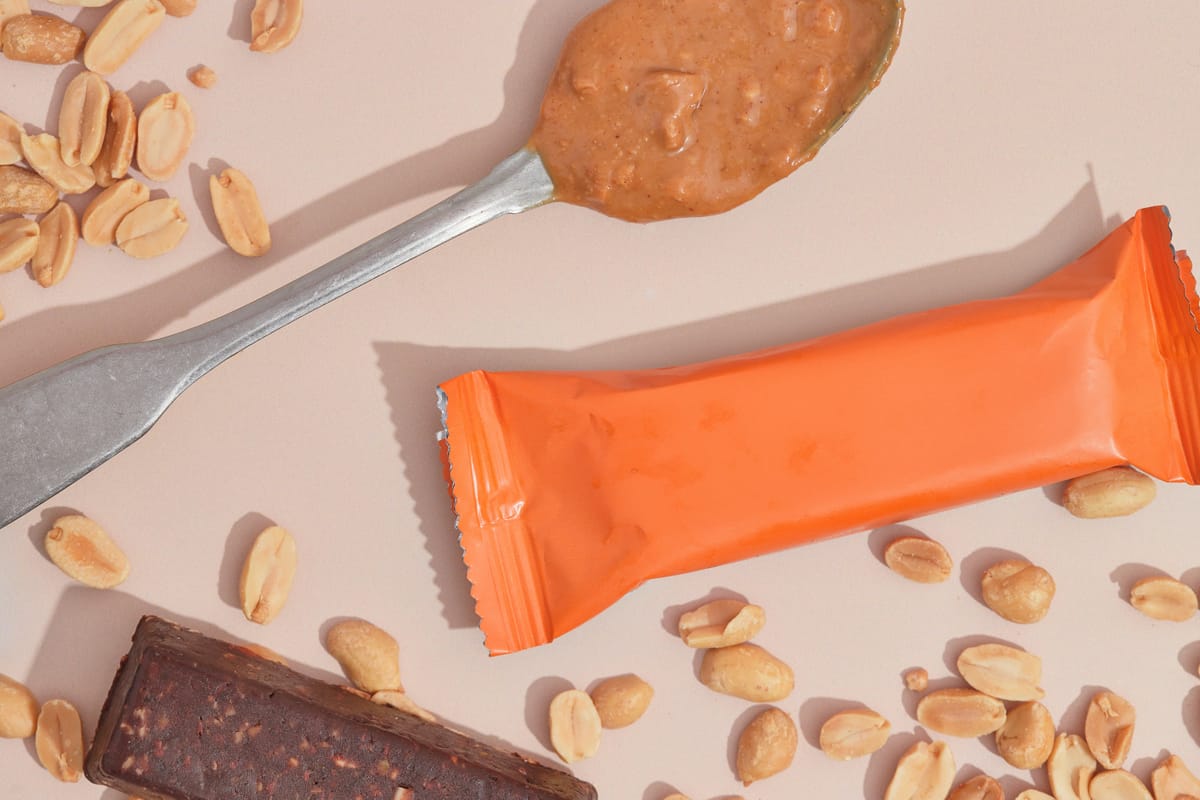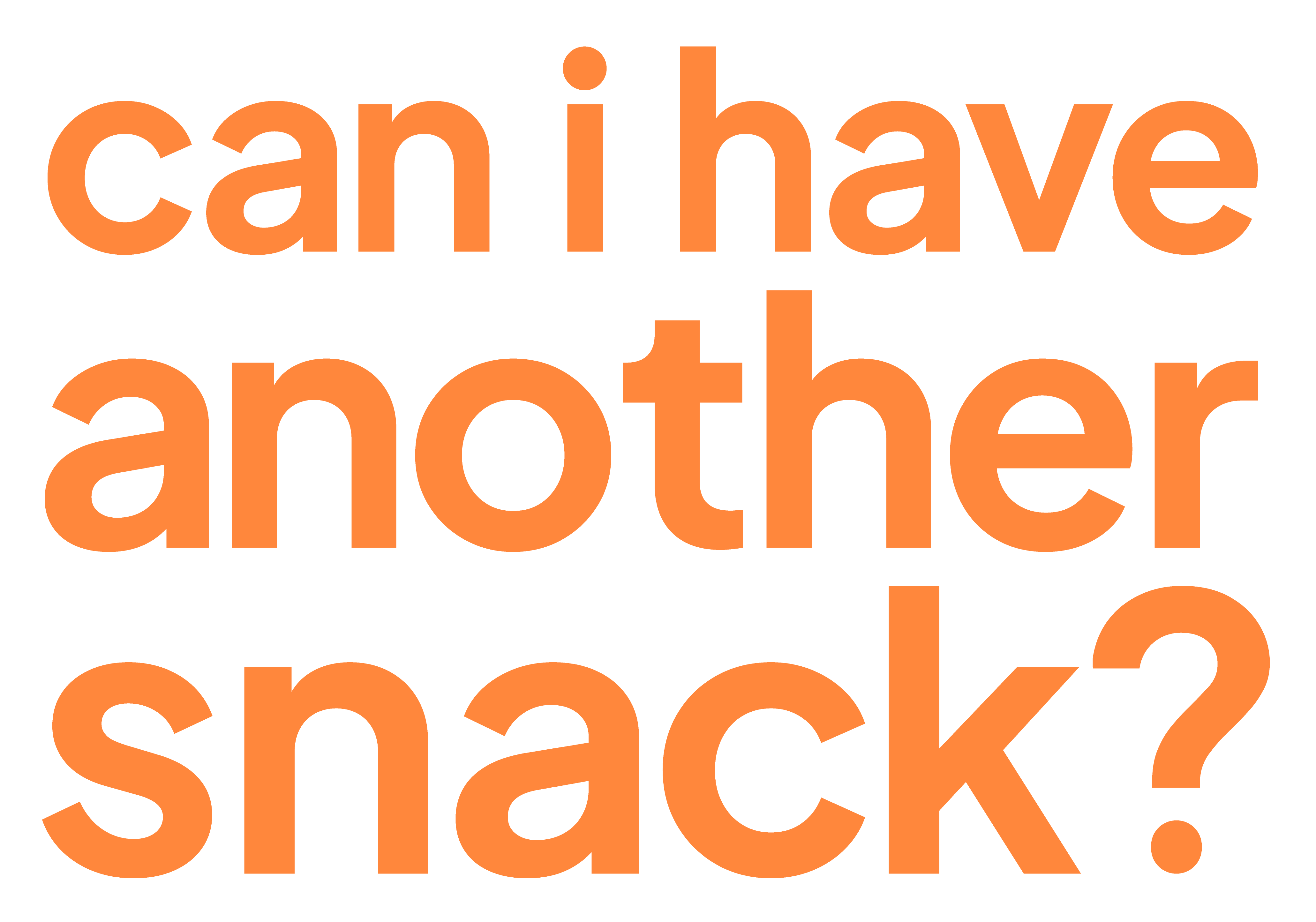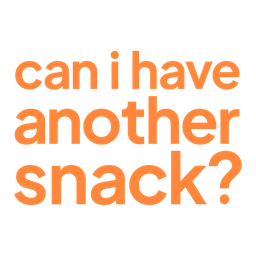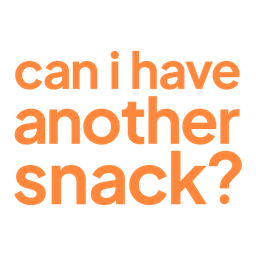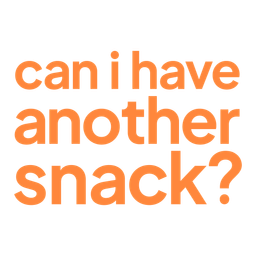Today, I’m joined by Dr. Colleen Reichmann - licensed clinical psychologist and eating disorder specialist with lived experience with anorexia, founder of Wildflower Therapy, and author of The Inside Scoop on Eating Disorder Recovery: Advice From Two Therapists Who Have Been There. Colleen is also an advocate for intersectional feminism, body liberation, and HAES, and she's also a passionate advocate for maternal mental health, and an IVF mom times two.
In this episode, Colleen and I talk about a lot of pretty difficult themes. She discusses her journey to parenthood through IVF and through multiple miscarriages. We talk about grief, ambiguous loss, and being really angry and mad at your body and why it's important to allow all of that to be there.
We talk about these topics as sensitively as we can, but if it's not for you right now, then just give this one a miss. There are loads more episodes that you can go back and listen to and just come and join us in the next episode.
Find out more about Colleen’s work here.
Follow her work on Instagram here.
Subscribe to her Substack here.
Follow Laura on Instagram here.

Episode Transcript
Colleen Reichmann: But I felt like my body did let me down.
I wanted those babies. Like, so much, and it didn't do what I wanted it to do. I can't imagine anything more important in my life than that, and it let me down, like, repeatedly. I had such rage.
Like, I am at this point, just like any relationship we have with like a spouse, for example, your points where you're going to be just so angry and need space from your spouse or your partner. And that's how I felt during that period. I didn't want to be, like, pushed to, like, reunite at that time, I was like, no, I want to sleep in different bedrooms.
INTRO
Laura Thomas: Hey, and welcome to Can I Have Another Snack? podcast, where we talk about food, bodies, and identity, especially through the lens of parenting. I'm Laura Thomas, I'm an anti-diet registered nutritionist, and I also write the Can I Have Another Snack? newsletter. Today I'm talking to Dr. Colleen Reichmann.
Colleen is a licensed clinical psychologist practicing in Philadelphia, Pennsylvania. She works at her group practice, Wildflower Therapy. She has lived experience with anorexia and this experience sparked her passion for spreading knowledge and awareness that recovery is possible. She is now an eating disorder specialist and has worked at various treatment facilities as well as authored a book, The Inside Scoop on Eating Disorder Recovery, advised from two therapists who have been there.
She's an advocate for intersectional feminism, body liberation, and health at every size, and she's also a passionate advocate for maternal mental health, and an IVF mom times two. So in this episode, Colleen and I talk about a lot of pretty difficult themes. She discusses her journey to parenthood through IVF and through multiple miscarriages.
We talk about grief, ambiguous loss, and being really angry and mad at your body and why it's important to allow all of that to be there. We talk about these topics as sensitively as we can, but if it's not for you right now, then just give this one a miss. There are loads more episodes that you can go back and listen to and just come and join us in the next episode.
We're also going to be talking about raising embodied kiddos towards the end of the episode, so you can also just skip forward and listen to that part. And Colleen shares some of her really great advice as a mother and an eating disorder specialist psychologist about how we can help protect our kids’ embodiment.
But before we get to Colleen, I really wanted to remind you that the Can I Have Another Snack? universe is entirely listener and reader supported. If you get something out of the work that we do here, please help support us by becoming a paid subscriber. It's £5 a month or £50 for the year and as well as getting you loads of cool perks, you help guarantee the sustainability of this newsletter and have a say in the work that we do here as well as ensure that I can keep delivering deeply researched pieces that provide a diet culture-free take on hot nutrition topics like ultra processed foods, the Zoe app and a deep dive on helping kids have a good relationship with sugar..
All of those articles I've already written and you can read at laurathomas.substack.com. And if you're not yet totally convinced, then maybe this lovely review that I got recently will help. So this reader and listener wrote:
“I want to support the work you're doing as I think it's really important and I believe that you should be paid for your work.” I agree! “I value the model of subscriber direct support rather than ad revenue. I really like all your comments and interviews on the podcast about internalised capitalism and how it affects our views of things without us even realising. Thank you for spending your valuable time and skills to do all this research and writing it up.
I would love to see you talking about all of this in mainstream newspapers, TVs, magazines, and other media. It's such an important topic and I really hope you get more and more moment for your work. Also on a personal note, you are helping me change my children's lives for the better by educating me about all of this. Really appreciate all that you're doing.”
Such a kind review, thank you to the person who emailed that in, you know who you are. So yeah, it's £5 a month, or £50 for the year, and you can sign up at laurathomas.substack.com. Or check out the show notes for this episode. And if you can't stretch to a paid subscription right now, you can email hello@laurathomasphd.co.uk for a comp subscription. No questions asked, just put ‘Snacks’ in the subject line.
All right gang, here's Colleen.
MAIN EPISODE
Colleen, can you start by letting everyone know a little bit about you and the work that you do?
Colleen Reichmann: Sure. So my name is Dr. Colleen Reichmann, and I'm a licensed clinical psychologist and an eating disorders and body image specialist with a small group practice in Philadelphia. We see people virtually and in person, there's 5 of us, we all focus on body image and eating disorders and then sort of sub-niches within that community and and one of mine is also perinatal mental health.
That's me professionally. I'm also the co-author of the book The Inside Scoop on Eating Disorder Recovery and a speaker and a writer of other things, and then just a mom, somebody with lived experience of an eating disorder, as well as infertility and IVF. And I have two IVF babies, Ezra and Marigold, who live with me, and two, like, very chaotic dogs, and I live with all of them, and my partner, outside of Philadelphia.
Laura Thomas: Wow, there's, yeah, loads of different parts of your identity, I suppose, that I'd love to dig into and talk to you about, but I'd love to start by talking about your journey to parenthood. You mentioned there that you had your babies through IVF and I know you talk really openly about this, uh, on your social media platforms and on your Substack. And I'd love just to help orient the listeners a little bit to some of your experiences, if you could share what that journey has been like for you.
Musings from a MamaEssays on motherhood, feminism, and living a meaningful life. By Dr. Colleen Reichmann
Colleen Reichmann: For some reason for me the piece about having both of my babies through IVF feels really important to share. It almost just feels like a lot of my parenthood, like my identity hinges on, it just feels so integral to who I am as a mother at this point and a parent, so I feel compelled to make it like, I have it in bios and even my partner at one point is like, why do you have like your professional psychologist and then also IVF mom?
And I was like, I don't know. It just, it feels like it factors so much into the whole lens that I view perinatal mental health at this point. So I was somebody who went through about 5 years of infertility. Once you launch into the process of digging into what's going on with infertility, there's like a cascade of interventions that happens, and mine was pretty standard,. And looking back, I just kind of, like, fell into the cascade and did what everybody said to do.
I have, like, just different questions now about the process. But essentially, I did rounds of medication, medicated cycles, and then IUI is kind of, like, the next part of the process. And we had multiple failed IUIs, which is interuterine insemination. And then when you have enough of those, you know, failures, the next step is IVF. Which I would joke with my partner and call it the…what did I call it? What's like the team, you know, in high school, there's like the…varsity! I was like, well, I'm varsity and fertility now because I'm in the IVF process.
Laura Thomas: You've graduated on to the next step. Yeah, I guess that you need some sort of like levity in amongst what sounds to me to be like a, an extraordinarily heavy process otherwise..
Colleen Reichmann: Yeah. I think infertility and especially, I think IVF is its own specific form of trauma, but infertility is very traumatic in my opinion. And for me, there was like this specific part of it that felt traumatic that I had this whole history of an eating disorder, like a decade long and part of the reason I had…just reasons to recover or reasons to get into a more stable place and having children was one of them.
And so it felt like a slap in the face, like I did all the work that I didn't want to do for many years. And I just felt like, I was promised something by professionals, even though that's not true. Like, it was just, it was discussed a lot in sessions.
Laura Thomas: No, but I am, I'm just sitting here reflecting on how many times I've…you know, I, I'm not sure that, like, leveraged that is quite the right phrase, but you know when, when people ask me about what are the long term impacts on my health of, of my eating disorder, you know, I will say fertility is, is one of the, one of those long term things.
I can see how that's really a double edged sword to say something like that, because, you know, further down the line, if that person goes through the motions of recovery and does that really excruciating work, and then comes out the other side and their fertility…and, and we don't know if I'm not trying to insinuate that people's infertility is necessarily related to their eating disorder or not, but I hear what you're saying is that you were promised this prize at the end of, of eating disorder recovery and it wasn't there for you.
And that in and of itself must have been so painful.
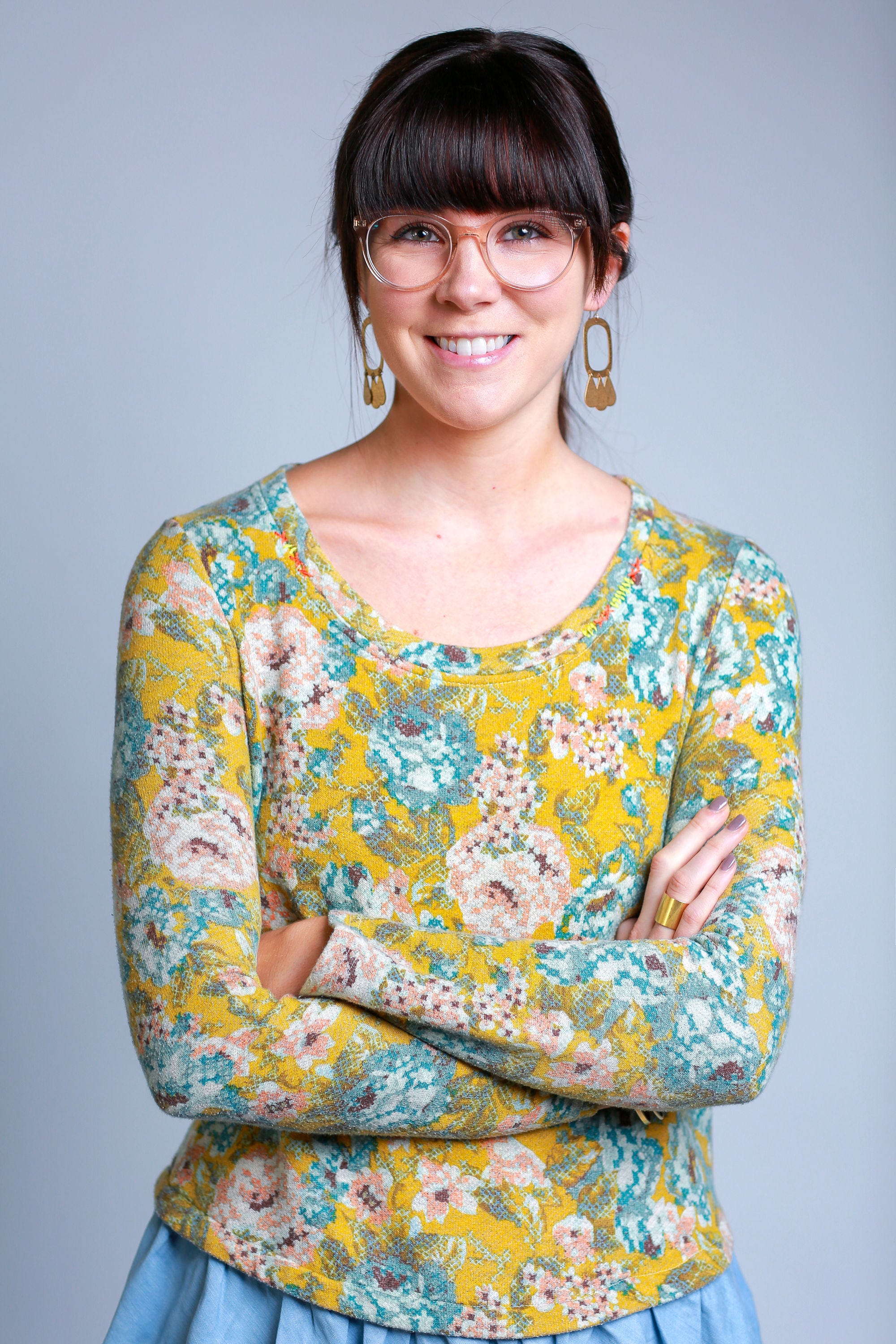
Colleen Reichmann: It's so painful. There was a specific instance that stuck in my mind. When I was in, I think it was high school or maybe like early college, but really young and I was sitting with a therapist who was also trying to kind of like leverage fertility or I would say trying her best to motivate me, in a way that backfired because I was overly, I was just not in a place to be motivated at that point.
But she asked like, do you want to be skinny or do you want to be able to have kids one day? And I remember like…yeah, I remember just saying “skinny”, like looking at her and, it haunted me for like all those years of infertility. I had that in my mind, that like session and that exchange and I was like, I did it.
I guess I brought this on myself and I, you know, I said that and I…just like the whole thing was just very complex and painful, and it felt like, yeah, just a twisting of a knife and I… but also like I did it to myself, and it was just a really, they were like devastating years, the years of infertility.
Laura Thomas: And it sounds like so much self blame there as well. It's no one's fault yet I can imagine that that adds another layer of sort of pressure and complexity and pain to the situation that was already really upsetting.
Colleen Reichmann: Yeah,
Laura Thomas: So how did it play out from there? What was the sort of next step, if you will, through these years of infertility?
Colleen Reichmann: Well, once I started the IVF process, I ended up actually getting what's called ovarian hyper simulation syndrome. So, I produced like a lot of eggs and then got really sick after IVF, I was actually hospitalised. I then had a lot of embryos from that, which is like, such a great thing, but also was arguably, like, a little bit aggressive, the IVF treatment that I got. But anyway, so we went through the process of several failed frozen embryo transfers and then several transfers that ended in miscarriage and then ended up at some point – after I moved to Philadelphia, because we, I was doing all this while I was living in a different state and then we moved and relocated – and I remember saying, I'll do it. I'll try one last transfer and then I think I need to either pause or just stop this for right now and find another way to pursue happiness. Like, I have to…this is consuming everything. I'm becoming like a husk of a person, like I'm just infertility.
And so then that transfer ended up being my now three year old son, Ezra, but I was so burned out by that point that I, when I took the pregnancy test after I had the, like, the two week wait and everything, I left it on the bathroom sink and went to like fold laundry because I was just so sure that it wasn't going to be positive. And then I remember when I came back and saw it, I didn't…my mind after just like years and years and years of only negatives was like, I can't, it must have been a full 60 seconds where I was just like, What's this? Like, what? I could, I could not compute.
And then, yeah, after I had him, I did another embryo transfer, another miscarriage, and then my now one and a half year old daughter, Marigold, came after that.
Laura Thomas: Wow. There's such a lot to process in there… such a wild, wild roller coaster by the sounds of things. And I can, yeah, I can totally see why you would be in that state of disbelief and kind of not allowing yourself to really let it wash over you, that this thing that you'd longed for for such a long time was, was real.
I could imagine that there was a kind of sense that it could be taken from you at, at any moment. And so allowing yourself to just get in touch with that must have been, yeah, putting yourself out there to, to let it be real.
You also mentioned, in amongst your IVF journey that there were some losses, some pregnancy losses. You've written really beautifully about pregnancy loss, body image and grief, and specifically about miscarriage as a form of ambiguous loss. This is a concept that I find really helpful just in body image work, body embodiment work generally. But I wondered if for anyone who was unfamiliar with that concept, if you can share that, what that is and what that means and looks like in the context of pregnancy loss.
Colleen Reichmann: So ambiguous loss…I guess the simplest definition would be loss without any real closure, loss where there's not…not that there's ever a clear cut path, but where there's a less, even less of a clear cut path than normal from loss to acceptance. And I definitely think miscarriage and pregnancy loss falls underneath that umbrella, for sure, just because there's often loss, with no tangible evidence of ever having anything.
Other things, of course, in our society fall under ambiguous loss, like loss where it somewhat, it feels like a death, but the person is still physically present, like if somebody has dementia or, if you're estranged from a family member, things like that. But with miscarriage, I think the concept of ambiguous loss also really connects with the concept of disenfranchised grief, which feels so important, to me, in the discussion of it all.
Laura Thomas: I haven't heard that term before. I would love to unpack that a little bit more.
Colleen Reichmann: Okay, so disenfranchised grief is essentially…it's grief that's not, like, publicly accepted. It's grief that's not sort of socially acknowledged and interpersonally and socially mourned. So, a lot of times, I like to call grief, like, if you lose a family member, sometimes I'll call it ‘Tupperware Grief’ because people, at least at first, hopefully, like, show up with tupperware containers and dinners.
Then disenfranchised grief, like that of a miscarriage is more, like, there…oftentimes there's no big show of support. Like, there are no, like, tupperware dinners or people showing up. People don't know how to talk about it even, even less than they know how to talk about just…
Laura Thomas: Regular death.
Colleen Reichmann: yeah, like, normal grief.
And oftentimes when you have a miscarriage, there's also that added component of not having even shared, if it was an earlier miscarriage that you were pregnant. So you're going through this, like, life altering, awful grieving process alone, but you know, you haven't even shared that there's something to grieve and it's just confusing and sad and it's a really specific form of grief, I would say.
Laura Thomas: Yeah, I think as a collective, we do so poorly with grieving, you know, as a society, it's privatised, it needs to be neat and tidy and, for example, if somebody dies or if you have a miscarriage or, you know, there are any of these types of life events. We rarely get time off work or leave or anything to just have the space and the time to process some of what's happened to us.
I think, you know…what you're saying is there's a sort of additional layer to it where if it's an invisible loss or it's…I don't know, something that, yeah, intangible, I suppose to, to other people…where does that grief belong? There's nowhere to put it really.
Colleen Reichmann: Yeah, and so much of grieving that's helpful, like so much of what I think helps grieving people is like physicality and like the presence of others and showing up…
Laura Thomas: Community, yeah.
Colleen Reichmann: Yeah, like, and I'm, I'm not going to take this from you, like the sadness. I'm going to sit with you in it and I don't have the right words because normally there just are no right words.
So, like, let's let you feel the sadness and I'll be here next to you. And with disenfranchised grief, that's almost, like, gone. Like, there is just none of that.
Laura Thomas: Yeah. Going back to this idea of ambiguous loss, how do you think that can help us, you know, understand or process our experiences in some way?
Colleen Reichmann: You know, I think even the term . Like, even when I just had that knowledge that there was a word for it, that felt so affirming. So just, even understanding, like, that's what you're going through and maybe letting that sort of propel you to reach out, if possible, to people who feel really safe, even just one or two.
I can't think of anything just more important for the grieving process of pregnancy loss than some, like, I don't know, catalyst to reach out and share to people who feel safe because that was something I definitely…at least two of the miscarriages just totally had an in silent, like, didn't really share with almost anyone and then changed my process for the third and I had…I remember it was just awful like they always are, but like, I had really beautiful showings of support from friends, like, cards and…I remember one friend sent flowers and then, like, two months after sent another bouquet and was, like, still thinking of you.
And I was really touched by that because I was like, oh, it's like, not only is it, would it be a grief that's, like, totally unseen, but even with normal grief, a lot of times you get, like, the initial show of support and then it phases out and this person just is, like, still here, I still love you, you know, like, I know it still hurts. And that was all because I just tried to navigate it differently and asked for help that last time.
Laura Thomas: Yeah, I think what…you know, what you're speaking to is this idea around grief that we have to follow a strict protocol, right? Like there's that initial period where you might be allowed to, you know, completely fall apart at the seams, but then you are expected to, you know, do that within the, I don't know, the two to three days that your boss allows you off of work and then afterwards you have to contain your grief, or at least make your grief more palatable to people.
And what you're saying is that – I'm sort of reading between the lines here, but there is no timeframe for grief and when it's…when you've had a chance, well, it's never going to go away, is it, but you know, what you're saying is that, yeah, two months down the line, just having someone acknowledge that your pain is still there, that it's still valid, that it's, that someone sees you and is, is holding you. That's so powerful to have that, but in our society, yeah, like you have your allotted time frame for grieving and after that, sorry, no more flowers, no more cards.
No one's going to check in on you or give you time off work. I don't know why I'm so like, hellbent on the work thing.
Colleen Reichmann: It's so real though. Like, I think during one of my miscarriages, I remember there was a country that happened to grant, I think it was three days off to people who had pregnancy loss. I don't…do you know what country that is? Because I remember it was like in the whirlwind as it was all happening to me, and I was so like in a haze, but also aware of like, that's awesome.
And three days, like, and I can't believe we don't even have, there's no three days here. That's for sure. But also like, yay. That's really nice. That's being acknowledged. But three days is nothing like it's an…I don't know, it was just, but the work thing. So it's so real that it's just incredibly difficult to show up to things like work when you're, like, in the haze of grief.
Laura Thomas: Well, and I think it just, it speaks to how much society under capitalism dehumanizes our experiences and we are given our allotted time to grieve then you're expected to get back to work and be productive and if your grief spills over into your work, then you know, you're going to have to say something about that.
I, I don't know which country it is. I know that they've had conversations about it here in the UK, about having some sort of leave for pregnancy loss and other kinds of losses, but nothing that I know of that is formal at this point. But also again, yeah, like really a few days off work is probably not going to cut it for most people.
And you know, alternatively, some people might actually find it really helpful to be at work and be around people and, and kind of taking their mind off of it. So yeah, it's not… there's no one right way to, to mourn or to grieve.
Colleen Reichmann: Yeah, so true.
Laura Thomas: I also did an episode a little while back with Jennie Agg, who wrote a book about pregnancy loss called Life Almost, and just kind of how there are a lot of unanswered questions around pregnancy loss and infertility.
And I'm going to link to that in the show notes for people who haven't heard that, because I think that's also a really helpful resource if yeah, if this is something, a conversation that you need to have more of in your life right now.
I also wanted to talk to you a little bit about…I guess you called it body loathing. You talked about this sense of really loathing your body that you had in relation to miscarriage. And if it's okay with you, I'm going to read out something that you wrote as part of a Substack post and I will link to that as well. And you wrote:
“The only thing that makes sense, to me at least, is to allow all of these emotions and thoughts to wash over you. Yes, this includes intense body loathing. Don't try to fight it or even shake free from it, at least at first. Honour that these feelings are because this loss, the loss that many others won't even know about is real. It's real and it's excruciating and it's evidence of love.
And sometimes when grief is this big and things hurt this badly, we need a place to funnel the pain. If body loathing is the place for you in this moment, that's okay. That has to be okay.”
Can you speak to why this idea of allowing body loathing is so crucial because I think it's so counter to the narrative that we are told whether that's about body image in relation to like weight and shape concerns, or, you know, where we're told like, you know that you have to come up with like positives that you like about your body or even in the context of pregnancy related body changes, pregnancy loss, we're told like, well, your body did this amazing thing even if you didn't, give birth. That, oh, well, at least you know, you can get pregnant or like, you know, there's always this like positive spin put on it and, and so it just felt really refreshing for me to, to read, like, no, you're allowed to hate your body and you're allowed to just be really angry with it, and feel let down by it and feel betrayed by it.
So yeah, I just wondered if, you know, from a therapist's perspective, if you could explain why that is so powerful and crucial.
Colleen Reichmann: Yeah, that, that positive spin felt so offensive to me, especially through that journey in fertility and then pregnancy loss. Like and it just felt like everyone, like, and people were, of course, coming from a good place, but a lot of times it almost felt like…but you will, like, keep going, and I have so much hope for you, and, and, which is, like, maybe sometimes what I needed it, but a lot of times I was like, this is just so painful and like devastating and there's a lot of fear here that my whole life something that I've like wanted is not going to happen and I almost feels like you, you cannot tolerate sitting in it with me.
And you're not the one going…like, I'm the one actually like, so if you can't tolerate even being a bystander, you know, that's so upsetting, , and that the idea of, like, allowing yourself to just hate your body and be really mad at it, when it comes to infertility and pregnancy loss, it almost reminds me of, like, the…the chronic illness community often talks about, like, the eating disorder messaging on social media about, like, appreciating your body and loving your body and the function of it and how that feels really invalidating because, like, if my body…if I…what if I don't I appreciate it?
What if I'm like, it feels like it's failing me? What if it doesn't function, “like it's supposed to”? Where do I fall in all of this? I feel like I related to that a lot during this process of like, and I'll speak for me just personally, because I also don't want to say other people feel this way, but I felt like my body did let me down.
I wanted those babies. Like, so much, and it didn't do what I wanted to do. I can't imagine anything more important in my life than that, and it let me down, like, repeatedly. And I was just, like, I had such rage. And I was like, I just felt like it, it needed to be felt and I needed to be like, no, I don't, I don't need to connect with it right now.
Like, I am at this point, just like any relationship we have with like a spouse, for example, your points where you're going to be just so angry and need space from your spouse or your partner. And that's how I felt during that period. And if I didn't want to be, like, pushed to, like, reunite at that time, I was like, no, I want to sleep in different bedrooms.
I want time away. I want to, like, hate you. And I do. And that's, that is allowed, at least for me. And then, you know, some of the people that I work with, it's…there's something, like, affirming about that being just full permission, legalise hating your body.
Laura Thomas: Yeah. I think, you know, we talk a lot about the concept of being sort of positively embodied and, kind of having this mind-body connection and being attuned to what's going on in our bodies. And I also think that there needs to be space for the fact that sort of disengaging or being disembodied is also protective and powerful and is a coping mechanism.
And okay, maybe it's not sustainable forever, but there are times where that, where you just need to be able to check out. Just disengage and it sounds like that was part of your, your process at least, and, and it might be a helpful thing for other people to hold on to, especially in the face of like messaging around…appreciate your body and think about what it can do and, and so on.
Like I can, yeah, totally see how that reads really badly when you're in something like that.
Colleen Reichmann: Also, I do think some people might find that helpful for pregnancy too, so that it's helpful maybe in pregnancy loss, but also pregnancy can really just be an awful time for, like, to live in your body for some of us, so…that was another time in my life, which is interesting, because I just, there's so much devastation about the losses, but both pregnancies that were completed. I white knuckled it, is the best terminology I can use. I just, like, got through and they were just really hard experiences, probably the hardest physical experiences I've ever had in my life. Like, far beyond, you know, more challenging and uncomfortable than when I was in, like, the depths of the eating disorder.
I felt like it was helpful. And I know I've heard other people say this too, to like, be allowed…which is an interesting dichotomy, because I was so grateful, like, I wanted the…I was like, everything in my life had led up to that moment, and I wanted those babies so much, and so, like, hated all of it, pregnancy was just so hard in my opinion. So allowing people to really – if they need to, be really, like, unhappy and disengaged from their body during that time, too, feels like an unpopular message, but one that I think is, like, kind of important.
Laura Thomas: Yeah, I completely agree. I think it can, I mean, I know that there are additional layers if you've experienced, you know, pregnancy loss and gone through IVF because, you know, all of that trauma is stored in your body, right? And then you're adding something that is so desperately wanted and at the same time it can feel…I guess it can kind of be activating of everything, all of those other experiences that you've been through emotionally as well as the physical toll that that pregnancy and birth and, you know, everything that goes on in that sort of, especially first year or two years afterwards. It's, yeah, it's so much and…similarly to baby loss. Pregnancy loss or baby loss, we're not given space to grieve…for the grief that I think is an inherent part of pregnancy and childbirth and being a parent in late stage capitalism, like, just all of it.
Because, yeah, you know, you have your kids. So Colleen, why are we still talking about it? You should be happy and just getting on with your life. That's the message that we're so often given. Oh, your body did this amazing thing. That's true. And that was a very difficult experience.
Colleen Reichmann: Yeah. And people say like, for things like birth trauma, so often you hear again, this is, I guess, goes with that toxic positivity, but like, well, as long as you got your baby, as long as you got a healthy baby, and I'm like, that's so dually insulting to both parents who don't have “a healthy baby” at the end, like, whose babies have, you know, physical or medical issues, and then also to people who did experience, like, trauma, or it was like, you know, they're just things didn't go as planned are also allowed to feel things and to have grief. The main theme here is toxic positivity is, like, really problematic for this stage of life.
Laura Thomas: It doesn't serve anyone. And I think that connects back yeah, back to kind of what you were saying about being given permission to just loathe your body in the face of, you know, otherwise messaging that, just tells you to love your body and appreciate the things that it can do. I think we need to make a lot more space for these tensions, these complicated feelings.
So not to be like, well, you have your babies now! But also I did want to talk to you a little bit about parenting from the perspective that, you know, you are someone with lived experience of an eating disorder and also an eating disorder therapist raising these children and, I love the messages that you put out around, you know, protecting their embodiment and their relationship with food.
And I'd really love it if you could share, you know, a couple of the messages that you feel are most important to pass down to your kids to, I suppose, help disrupt that intergenerational transmission of body shame and disordered eating.
Colleen Reichmann: I think about this every day. One thing that I do want to make sure I say, because I just…I feel really strongly that there's a lot of pressure around this generation, like our generation of moms, to break intergenerational toxicity or messaging, and I just feel really strongly that you don't have to be perfectly healed to do that.
Laura Thomas: Yes, 100%.
Colleen Reichmann: You can be, like, still really struggling and be breaking, like, those intergenerational messages. I think that's really important to know. And also – this might even be, like, a less popular take – but that to not put too much pressure on yourself to break, like, all, like, maybe your role is breaking, maybe you break these ones, and then over there, you're still working on that, or those are, like, you're, like, just, I don't know, I think there's a lot of weird pressure now to be these, like, totally healed mothers.
Laura Thomas: There is. And I'm so glad that you said that. I think not only is there a lot of pressure in the form of often, like, you know, things that we should say or do or these, like, scripts that you often read on social media. There's a lot of those and some of them can be really, really helpful. Some of them less so, but I've been thinking a lot about this idea of how sometimes we need to say and do a lot less.
Colleen Reichmann: Mm hmm.
Laura Thomas: And how that's also okay. You don't have to, like, you know, do like, have all the little scripts memorised. But what might be a good starting point is if you don't talk shit about your own body in front of your kids. Like, if you just don't do that, that, that might be all that is needed.
There are helpful things that we can do, of course. But, yeah, I really appreciate you just kind of giving that…that caveat that, yeah, you, you don't have to be all, have everything all figured out. It's enough to be kind of thinking and reflecting and and not saying the shit things.
Colleen Reichmann: Yeah, and that…I feel like that is huge. That alone is just so monumental, the shift of like not saying negative stuff about our bodies or other people's, like, it's actually pretty easy once you get…like, it's easy to start to not like, comment on people's bodies, like, once you really get into the hang of it, like, in any direction, like, not comment…compliments or negative things.
So that's huge. And at this point, I do also want to say they're one and three, so I'm probably so freaking annoying to, like, parents of older kids. Like, I think I know what I'm talking about or something when I’ve been in this for like three years.
Laura Thomas: You and me both. You and me both!
Colleen Reichmann: They're like, what do you know?
But for right now, my feeling from what I've seen is that it's almost, like, away from bodies and food. There's messages that are, like, more important. Like, than even the things you say about bodies and food, like, one of the ones that I feel most strongly about, and I say to them, I try to say it every day, is like, I'm so happy you're in this world.
Like, I am so happy you're here. The things that you add to my life, I, like, can't even put into words, because I just feel like that's a really, like… there's something very protective about that message, like at least one person in this world is like, thinks like the sun rises and set, like, like, she is just so happy that I'm here, like, that's…and that's also, I like to tell people that because I feel like it's really also easy, like, instead of being perfectly healed and the, you know, the most knowledgeable about all the body positivity things, like, focus on making sure they feel like your just delight in their presence that doesn't have to do with their appearance, you know.
Laura Thomas: Yeah, that idea of taking delight in the fact that they're there and they're in your life and, you know, they're gonna absorb that energy as it were. I love that.
And also I was just gonna make the caveat that I'm also sometimes displeased to see my child and that's also okay if you have those. Especially at like six o'clock in the morning when I'm like, you're supposed to still be asleep. So yeah, I didn't want that to sound like, uh, an imperative.
Colleen Reichmann: I think there was this research, I could be wrong, but I thought there was like research that you just have to do it for like 5 or 10 minutes a day, and that can be fundamental to self esteem building, but I also don't know if that's true. I feel like I could have made that up, but I think, so it doesn’t have to be all day long.
Laura Thomas: Don't fact check, Colleen.
Colleen Reichmann: Yeah, just trust me. But, like, in a similar sense to that, I also think another thing that's just so helpful for, like, our kids and their bodies, is the way we talk about sex and their body parts, like, using the medical terms for body parts and not being…like, I talked in another podcast about how I recognised with my daughter when I was saying the word vagina, that I have felt, vaguely uncomfortable at first. And I was like, whoa, well, there's nobody in her life right now that's gonna like, show her how to feel comfortable and like that my body parts are all allowed other than me. I need to kind of step into that, own it.
And so I got a book, like, uh, the Pop Out Vagina Book or something. And we, like, read it every day and I was like…that's another really kind of basic, easy way to show them, this is how to just feel comfortable and, like, safe in your body.
Laura Thomas: I love that. I'm going to get the link to that book and put it in the show notes for anyone else who's kind of…yeah, because I mean, I think our generation, we were like given all of these kind of like cutesy code words for labia and vagina and of course it feels uncomfortable because it's the first time that we're really having to use those words in…and teach other people about those words.
So, of course, it would feel uncomfortable. I love that you're normalising that. And yeah, there's tons of really cool books and resources that you can use to normalise that.
I wanted to ask you just really quickly about one sort of food related message that you shared on, I think it was a Reel. This is a message that you want to instill into your kids where you've said that food is not just fuel. You're allowed to eat for boredom, for pleasure, to self soothe. Your appetite isn't scary for us. Ever.
I just love this message so much and I just wanted to hear you kind of unpack that a little bit more.
Colleen Reichmann: Yeah, I think my hope is to just make food a really… like, you're allowed to interact with food in the ways that are innate to all of us, and you're never going to be micromanaged, and, like, I will never micromanage you, and I hope that you don't feel the need to micromanage yourself as you get older. Because we all, like, that is a very healthy and okay, like, human drive is to use food we have for, like, you know, ever to, to celebrate, to mourn, to self soothe at times, or hunger, for things other than hunger, like it's.. just hope to be able to foster an environment where it's all allowed and it's never, like, there are never nonverbal or verbal messages that, like, your appetite's scary or, you know, I have a problem with you interacting with food. Like I just really want to be protective of their relationship with it.
Laura Thomas: I think that the line that really, really resonated for me was that piece that your appetite isn't scary for us, ever. And I also just wanted to acknowledge that for a lot of people I know listening to the podcast and who read the newsletter, their kid's appetite does feel scary and overwhelming to them.
And I just wanted to say, you know, we see you and that is the soup that we're swimming in. So it's totally understandable that you feel like that. And something that, you know, when I'm doing workshops and things on embodied eating, I ask parents to look for the signs that you can trust your child, look for, you know, the signs that they know how to trust their own bodies and think about what we can learn from that. So I'll offer that. I don't know if that's helpful, but I just wanted to acknowledge that yeah, our kids' appetites can be scary sometimes.
I'm with you, Colleen. Like, they shouldn't be, but it's the messaging that we've been indoctrinated into thinking.
Colleen Reichmann: Like it is very counterculture to say like, your appetite isn't scary and you're allowed to eat to self soothe. So I totally empathize and understand why people do feel like that fear…and it comes from a place like think about the stakes that we feel like we're under with this, like, the stakes that they're trying to sell us are like you're not a good mom or parent if you don't manage food and…yeah in this way or their weight. And that's just scary for everyone, so I have so much empathy for people trying to break free.
Laura Thomas: Yeah. But even just again, you know, going back to what we talked about before about not having to be perfect with this stuff, but even, you know, saying to your kids, I trust your appetite, even if you're not 100% there yet. But I think there is something so powerful if you could at least, you know, in giving that message at least.
Colleen Reichmann: Yeah.
Laura Thomas: All right, Colleen, this has been so great. Like I said to you off mic, there are so many different ways that I felt like we could have taken this conversation. We could have just talked about parenting stuff. We could have just talked about the grief stuff, but we tried to squish it all in. So thank you so much for being here.
At the end of every episode, my guest and I share what they've been snacking on. So it could be anything. It could be a show, it could be a literal snack, whatever it is. So can you share with us what have you been snacking on lately?
Colleen Reichmann: Yes. Well, thank you for having me. First of all, this was such a great conversation.
Okay. I have two. I have a literal snack. I've been loving is these Trader Joe's chocolate sea salt graham crackers that are…
Laura Thomas: Stop. I'm so, I'm so like…last Christmas, my brother sent me, like, a huge care package of stuff just from Trader Joe's and it was all their, like, crunchy great snacks and we can't get them here. So, yeah, they sound amazing.
Colleen Reichmann: They're so good. They have like, they have it down with the snacks.
Laura Thomas: They're really on point with their snacks, yeah.
Colleen Reichmann: And those are great for like, I like to have them, especially while I'm reading, which is the other thing I'm snacking on, which I wrote it down, so I did justice to the actual title. I'm rereading…it's called, Like a Mother, A Feminist Journey Through The Science and Culture
Laura Thomas: Oh, it's Angela Garbes.
Colleen Reichmann: Yes, yes.
Laura Thomas: I haven't read that, but I've, yeah, I've read her follow up book, which is Essential Labor. I don't know if you've read that. Oh, so good.
Colleen Reichmann: Yeah, I've read that one. I really like both of them. I honestly like, they're just…they're the type of thing you have to read. I'm re-reading this one because I'm like, I feel like there's so much amazing stuff in it and I, oh my gosh, I love. Yeah, her writing is just, incredible. And the way she writes about motherhood is so different than what I've seen elsewhere.
Laura Thomas: Oh, man. Yeah. I know. I have thought about going back and reading her first book after coming to her through Essential Labor, and her Substack is great as well if, yeah, if anyone is…I'll link to that in the, in the show notes. So, okay. Yeah. You're making me think I need to go back and read that.
Donita Reason explicitly laid out like a fruitcakeBy Angela Garbes
So my snack is an illiteral snack this time. So there is another Substack newsletter called that probably everyone is sick of hearing me talk about because I link to them like every week in our like weekly community threads. Ruby Tandoh is one of the writers for Vittles and she did this like deep, deep, deep dive into London ice cream culture and all the different kind of ice creams from…that are not just like gelato and ice cream and like the things that you hear a lot about.
And she tried like, I don't know, something like 350 different kinds of ice cream all all across London. She narrowed it down to like a top 16. So this is a really long way of telling you that my snack is one of the ice creams that she talked, I picked, I think it was like number 14 or 15 on the list and it's called Vagabond ice cream.
And they do these vegan, like, choc ices. I don't know, what do you call them in the States? Like, choc blocks or some, I don't know, some like, Do you know what I mean? And then it's got, it's got like a layer of chocolate around it. What is that called in the States?
Colleen Reichmann: Like an ice cream sandwich?
Laura Thomas: No, because that's like, that's like a cookie, right? With cookies on the, on either side.
Okay. Someone, I'm sure someone in the comments will let us know, but the flavour is like a peanut butter ice cream and then the chocolate has bits of pretzel around it. So you've got that salty, sweet, crunchy…like it's a textural delight, for anyone who is like a sensory seeker, that's yes, very, very good.
Colleen, would you mind sharing just quickly where people can find you and your work?
Colleen Reichmann: My website is just ColleenReichman.com and then I have an Instagram which is @DrColleenReichmann. , I tinker around on TikTok under the same username. I struggle with making those, like, educational, though. A lot of them are just silly. And let's see…I started a Threads because everybody's doing it. So I jumped on the bandwagon. Same username. And then I have a Substack, which is Musings From A Mama, which I'm trying to figure out a way to write regularly because it just brings me such joy to write about the complexities of motherhood. And then my email is just colleenreichmann@gmail.com.
Laura Thomas: Oh, cool. I don't know that anyone's ever shared, like, straight up shared their email before, but I love…
Colleen Reichmann: Yeah!
Laura Thomas: Just get in touch, everyone, just…
Colleen Reichmann: Come on over.
Laura Thomas: No, I really love your Substack and I'm glad to hear that you're going to be thinking of ways to write more often. So yeah, I will link to all of that in the show notes.
Musings from a MamaEssays on motherhood, feminism, and living a meaningful life. By Dr. Colleen Reichmann
Colleen, it's been so great to talk to you. Thank you so much.
Colleen Reichmann: Yes, thanks for having me.
OUTRO
Laura Thomas: Thanks so much for listening to the Can I Have Another Snack? podcast. You can support the show by subscribing in your podcast player and leaving a rating and review. And if you want to support the show further and get full access to the Can I Have Another Snack? universe, you can become a paid subscriber.
It's just £5 a month or £50 for the year. As well as getting tons of cool perks you help make this work sustainable and we couldn't do it without the support of paying subscribers. Head to laurathomas.substack.com to learn more and sign up today.
Can I Have Another Snack? is hosted by me, Laura Thomas. Our sound engineer is Lucy Dearlove. Fiona Bray formats and schedules all of our posts and makes sure that they're out on time every week. Our funky artwork is by Caitlin Preyser, and the music is by Jason Barkhouse. Thanks so much for listening.
ICYMI last week: How Do You Deal With Clothes That Don’t Fit Anymore?

